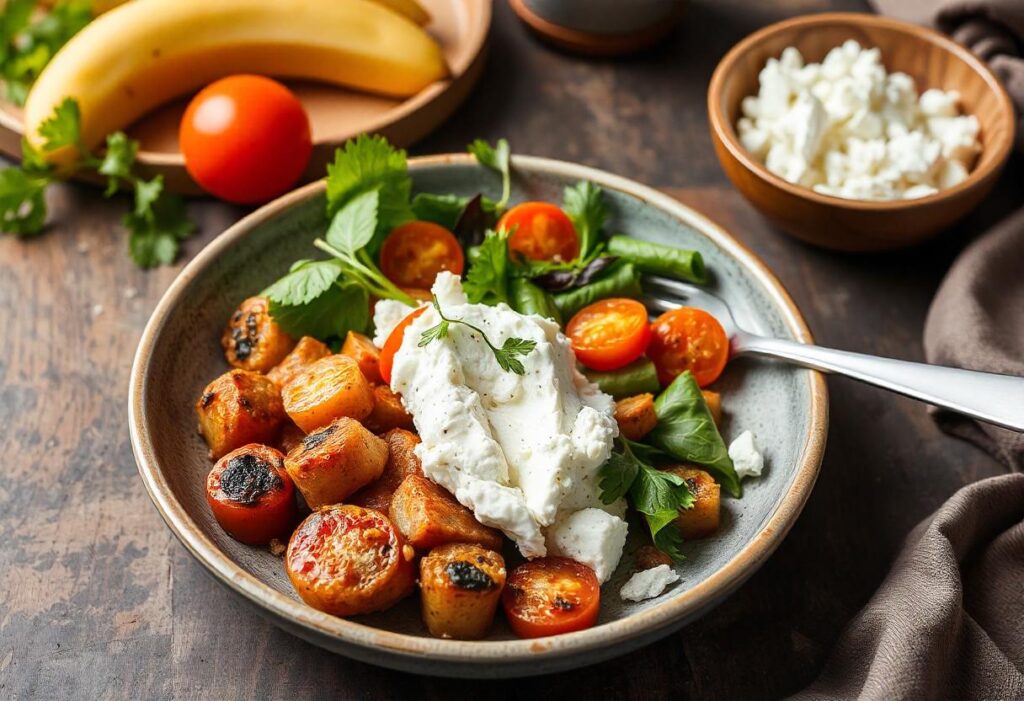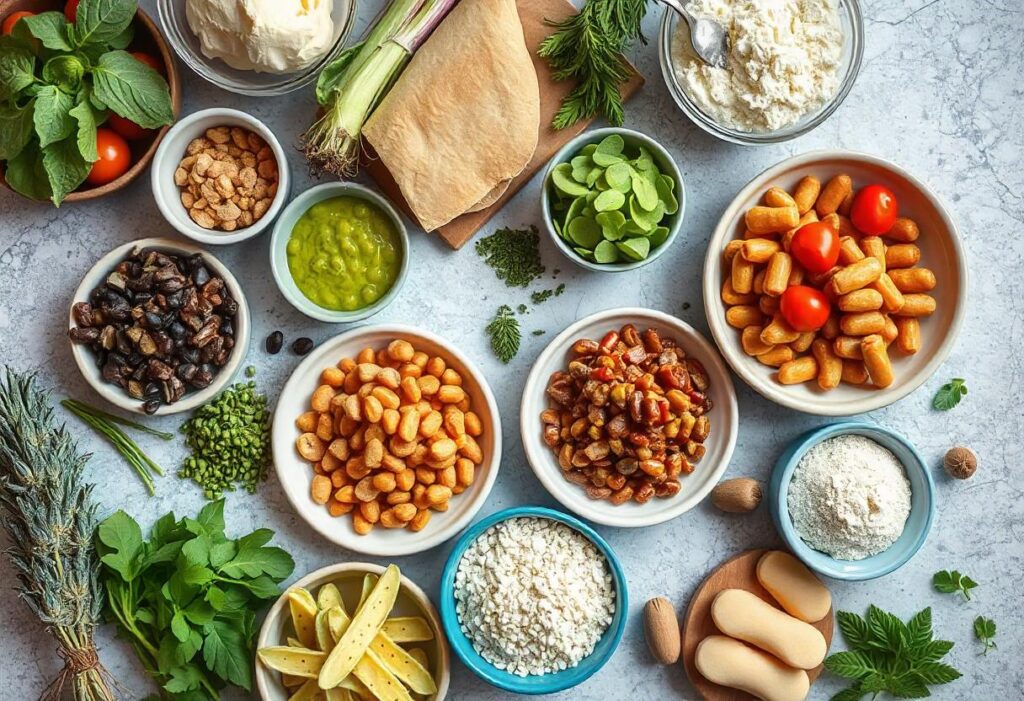Protein is crucial for weight management and muscle health. This essential macronutrient offers unique benefits compared to carbohydrates and fats.
When consumed appropriately, protein can boost metabolism and promote feelings of fullness. These effects make it easier to maintain a healthy weight or lose excess pounds.
The type of protein matters just as much as the quantity. High-quality sources like whey protein can be particularly effective for increasing muscle mass and burning fat.
Adding more protein to your diet may increase energy levels and physical activity. However, it’s important to balance protein intake with overall nutrition and exercise habits for the best results.
Key Takeaways
- Protein helps with weight control and muscle maintenance
- High-quality protein sources can boost metabolism and reduce hunger
- Balancing protein intake with diet and exercise is key to optimal health.
Protein Pointers
Muscle Growth Strategies
Spreading protein consumption throughout the day can boost muscle building. Aim for several protein-rich meals and snacks. This approach helps maintain a steady supply of amino acids for muscle repair and growth.
Lean meats, fish, eggs, and dairy are excellent protein sources. Plant-based options like beans, lentils, and tofu work well too. Mixing protein sources ensures a complete amino acid profile.
Gentle on the Stomach
For those with sensitive digestion, choose easy-to-process proteins. Cooked eggs, white fish, and well-cooked lean meats are often tolerated well. Pair proteins with green vegetables to aid digestion.
Chewing food thoroughly helps break it down before it reaches the stomach. This can ease the digestive process. Experiment with different protein sources to find what works best.
Daily Protein Targets
Aim for 3-3.5 grams of protein per kilogram of body weight daily to build muscle during intense training. This higher intake supports muscle repair and growth.
About 2 grams per kilogram of body weight is often enough for fat loss goals. This amount helps preserve muscle mass while creating a calorie deficit.
Protein powders can be a convenient way to meet these targets. Whey, casein, and plant-based options are available to suit different needs and preferences.

Top Protein Sources for Weight Loss
Eating protein can help with weight loss. Here are some great protein choices:
One: Lean meats
- Chicken breast
- Turkey breast
- Lean beef
Two: Fish and seafood
- Salmon
- Tuna
- Shrimp
Three: Eggs
Four: Low-fat dairy
- Greek yogurt
- Cottage cheese
Five: Plant-based protein
- Lentils
- Beans
- Tofu
These foods are high in protein but low in calories. They can make you feel full and help build muscle. Eating more protein may also boost your metabolism.
Try to include a protein source with each meal and snack. This can help control hunger and cravings throughout the day.
Top Protein Options for Shedding Pounds
Eating more protein can aid weight loss efforts. Here are some of the best protein sources to include in a diet:
- Lean meats like chicken breast and turkey
- Fish such as salmon, tuna, and cod
- Egg whites
- Low-fat dairy products like Greek yogurt and cottage cheese
- Plant-based options like lentils, beans, and tofu
These foods are high in protein but low in calories, making them ideal for weight loss diets. Protein helps build lean muscle mass and boosts metabolism. It also increases feelings of fullness, which can reduce overall calorie intake.
A high-protein diet may lead to greater weight loss compared to other diets. Aim for about 25-30% of daily calories from protein. Spreading protein intake throughout the day can maximize its benefits.
Adding protein-rich foods to meals and snacks can make weight loss easier. They provide nutrients while helping control hunger and cravings. Combining protein sources with vegetables and whole grains creates balanced, satisfying meals.
Top protein foods for muscle growth
Eating the right protein foods can help build muscle. Lean meats like chicken breast and turkey are good choices. They have lots of protein without much fat. Fish like salmon and tuna also work well.
Eggs are another great option. The whites contain protein, while the yolks contain vitamins. Dairy foods like Greek yogurt, cottage cheese, and milk also provide protein.
For plant-based eaters, lentils, beans, and tofu are protein-rich. Nuts and seeds like almonds and pumpkin seeds make good snacks. Protein powders can be added to smoothies for an extra boost.
Here’s a quick list of high-protein foods:
- Chicken breast
- Turkey
- Salmon
- Eggs
- Greek yogurt
- Lentils
- Tofu
- Almonds
The key is to eat protein with each meal and snack. This gives the body a steady supply of muscle. Spreading protein intake throughout the day works better than eating it all at once.
Protein needs vary depending on a person’s size and activity level. Most people should aim for 0.8-1 gram of protein per pound of body weight daily, but very active people may need more.

Common Questions About Protein and Weight Loss
Optimal Daily Protein Amounts for Women Trying to Shed Pounds
Women aiming to lose weight should eat about 1.6 to 2.2 grams of protein per kilogram of body weight daily. This helps preserve muscle mass and boosts metabolism.
A 150-pound woman would need roughly 109-150 grams of protein daily. Spreading protein intake across meals can help control hunger.
Protein’s Role in Reducing Abdominal Fat
Eating more protein may help shrink belly fat. High-protein diets can increase feelings of fullness and boost metabolism, leading to less snacking and fewer calories eaten overall. Combining increased protein with exercise is most effective for targeting abdominal fat.
Top Protein-Rich Foods for Weight Loss
- Lean meats (chicken breast, turkey, lean beef)
- Fish (salmon, tuna, tilapia)
- Eggs
- Low-fat dairy (Greek yogurt, cottage cheese)
- Legumes (beans, lentils, chickpeas)
- Tofu and tempeh
- Nuts and seeds
These foods are filling and nutritious while being relatively low in calories.
How Protein Aids Weight Loss
Protein helps with weight loss in several ways:
- Increases feelings of fullness
- Boosts metabolism
- Preserves muscle mass during calorie restriction
- Requires more energy to digest than carbs or fat
These effects can lead to reduced calorie intake and increased calorie burning.
Best Protein Supplements for Weight Loss
While whole foods are ideal, protein powders can be convenient. Options include:
- Whey protein: Fast-absorbing, good for post-workout
- Casein protein: Slow-digesting, good before bed
- Plant-based proteins: Pea, hemp, or rice protein for vegans/vegetarians
The best choice depends on individual needs and preferences. Look for supplements with minimal added sugars and artificial ingredients.
Can Protein Alone Cause Fat Loss Without Exercise?
Increasing protein intake without exercise can lead to some fat loss. Protein has a higher thermic effect than other nutrients. This means the body burns more calories digesting it. It also helps control appetite.
However, combining a high-protein diet with regular exercise is much more effective for losing fat and improving body composition.
Download your low-carb, high-protein dinner recipe book with two bonuses here.
I appreciate your support.
Feel free to visit my website at www.angedim.com/recipes for healthy recipes to help heal your body.
You can also visit my YouTube Channel for more recipes & health advice here: https://bit.ly/4aN7m1p
